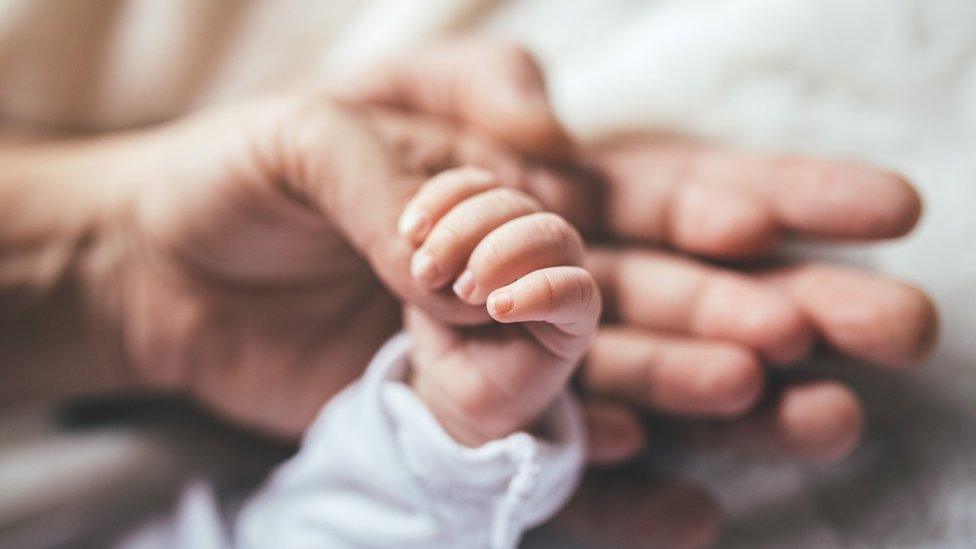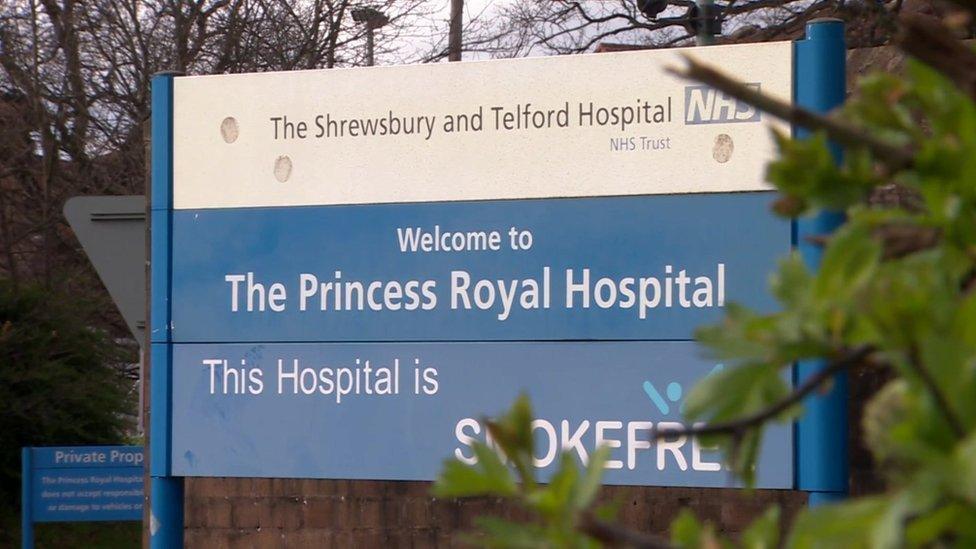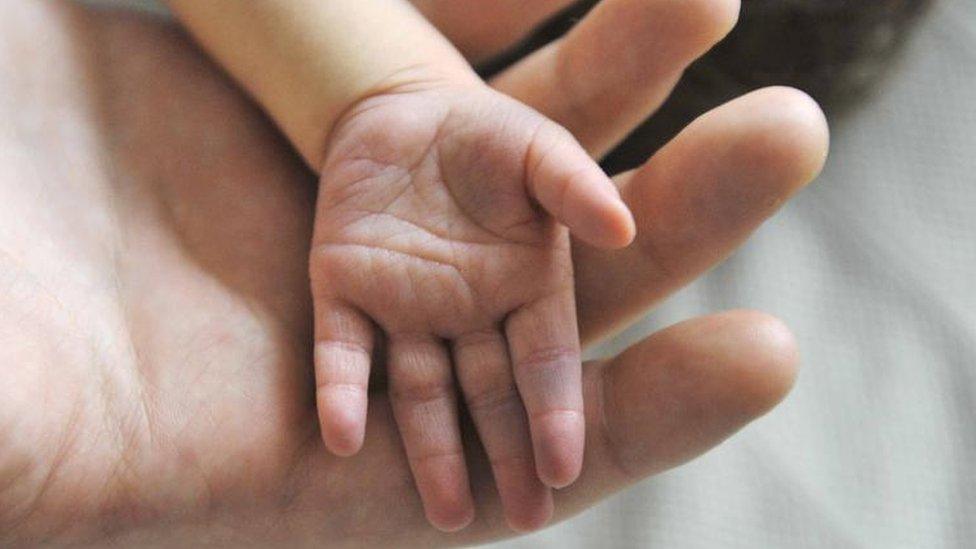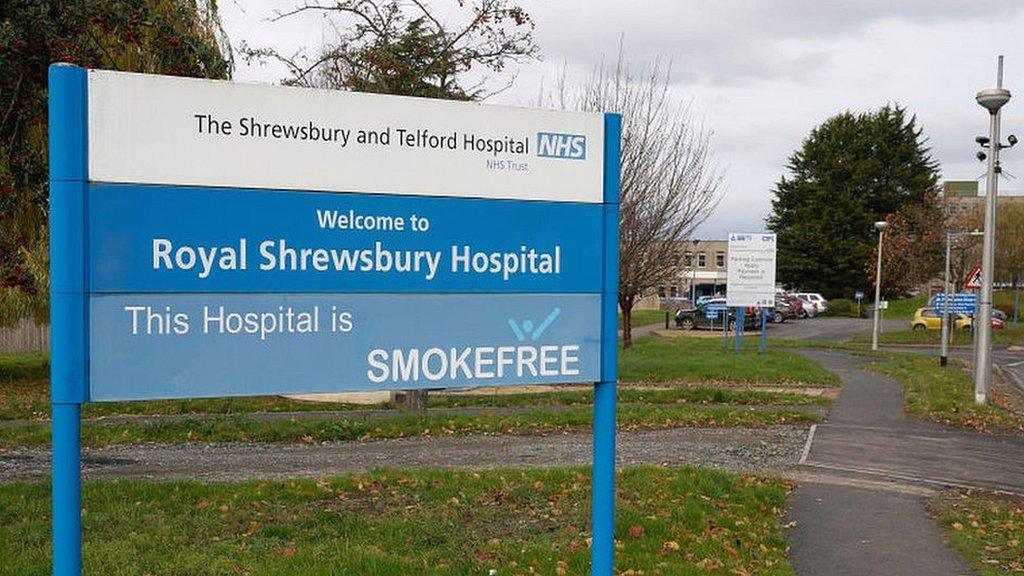Shropshire maternity scandal: Hundreds more cases under review
- Published

Hundreds more cases are to be reviewed by an independent inquiry into maternity care at an NHS trust, BBC News has learned.
As many as 300 cases were discovered following an examination of records at the Shrewsbury and Telford NHS trust.
It is understood the inquiry is now looking at about 1,500 cases of death or harm, most between 1998 and 2017.
The Shrewsbury and Telford trust said it was co-operating with the inquiry and its maternity care was improving.
Last week, West Mercia Police announced it had opened an investigation into whether criminal charges could be brought in relation to the maternity problems.
The independent review, chaired by Donna Ockenden, was ordered by former health secretary Jeremy Hunt in 2017 after two sets of parents who had both lost children through avoidable medical errors raised concerns about care.
That initial investigation into 23 deaths has continually expanded as more families have raised questions about the care they have received.
But the problems at the trust extend far beyond its maternity services. No other trust in England has as many conditions on its licence as Shrewsbury and Telford.
Inspectors, the Care Quality Commission, revealed last week that they had "new and ongoing concerns around patient safety" following an inspection in June.
Urgent discussions were said to be taking place with NHS England.

'I didn't expect my son to die'
Janette O'Maoldhomhaigh has long wondered why her son Declan was still born at the Royal Shrewsbury Hospital.
On arriving there in October 2000, 33 weeks pregnant, she says she was placed on a monitor but after being left alone for about an hour, a doctor came and told her the baby had died.
She had to give birth to her son the following day, and needed the support of a charity to bury him.
"I didn't save money for a funeral as I didn't expect my son to die," she said.
Following media reports, she has contacted the Ockenden inquiry to find out why her son died, why she was left alone for close to an hour and whether the wrong dosage of steroids was given to her for a long-standing chest complaint shortly before she gave birth.

A&E concerns
Shrewsbury and Telford NHS trust has been in special measures since November 2018.
When that downgrading was announced, Health Secretary Matt Hancock said external support would be offered to the trust by NHS England. But since then, care has deteriorated.
Its accident and emergency department is regularly either the worst, or among the worst, in England. The number of patients seen within four hours of arrival has sometimes been as low as 65%.
In some months, hundreds of patients have spent more than 12 hours on trolleys waiting to be seen, while hundreds more are trapped in ambulances waiting for more than one hour to actually be admitted to hospital.
There is a widespread belief across Shropshire that while frontline staff are providing the best care they can, they've been let down for years by the trust's senior leadership.
The last CQC inspection was published in April., external
Ninety-two breaches of legal requirements were found, and inspectors detailed 94 separate actions the trust must take.

The CQC found staff "did not feel respected, valued, supported or appreciated", and demonstrated high levels of bullying, harassment, discrimination, stress and work overload.
Directors of the trust described themselves as "shocked" that inspectors had downgraded their rating for providing a caring service - from good, to requires improvement.
Gill George, a long-time campaigner for better healthcare in Shropshire, said the biggest issue facing the trust was cultural, suggesting the senior team do not have a clear indication of what is happening at the trust.
Inspectors said "leaders recognised the quality of data was poor however they were relying on and taking assurance from this data".
According to Ms George, "because of quite a weak leadership over many, many years...what you have is a messy, complex, unhappy organisation with problems at virtually every level".
Maggie Bayley, interim chief nurse at the trust, said the potential new cases were found after the inquiry asked it to carry further checks, following an initial search of records held electronically.
On the latest CQC report, Ms Bayley said: "We recognise that a significant amount of work needs to be undertaken to address the issues...
"There is a dedicated programme of improvement at the trust to address all the concerns raised with us. Some progress has been made, for example in our emergency departments."
She added: "Services in maternity are now graded as being 'good' for caring, effectiveness and responsiveness....
"We are already receiving some positive feedback about the care we provide."
- Published30 June 2020

- Published30 June 2020

- Published16 January 2020
